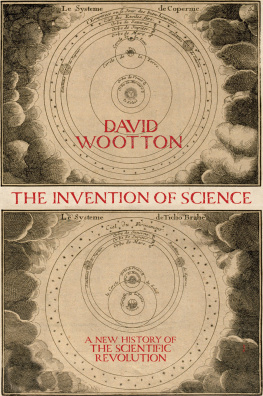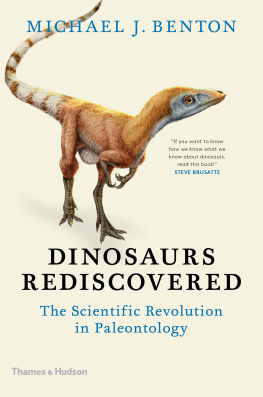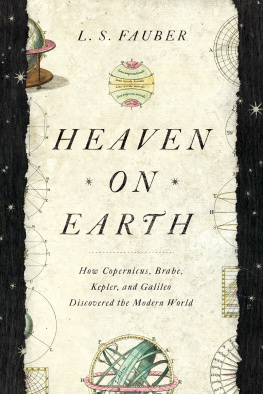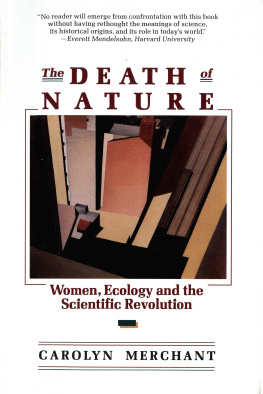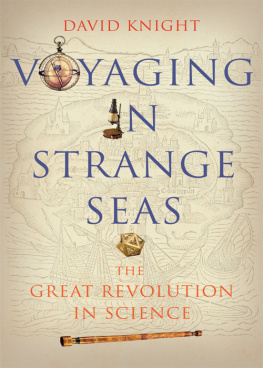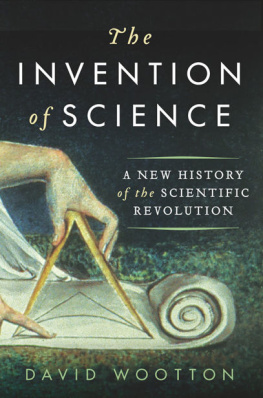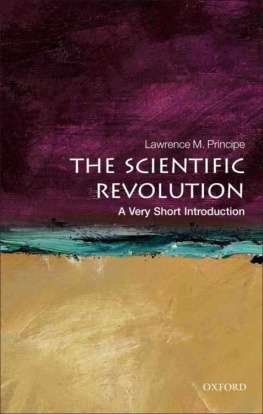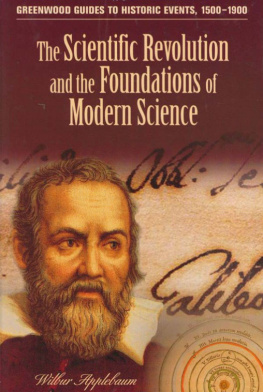Contents
David Wootton
THE INVENTION OF SCIENCE
A New History of the Scientific Revolution
ABOUT THE AUTHOR
David Wootton is Anniversary Professor of History at the University of York. His previous books include Paolo Sarpi (1983), Bad Medicine (2006) and Galileo (2010). He has given the Raleigh Lecture at the British Academy (2008), the Carlyle Lectures at Oxford (2014) and the Benedict Lectures at Boston (2014), and a Beller Lecture to the American Physical Society (2016). His next book will be on the pursuit of happiness.
PENGUIN BOOKS
THE INVENTION OF SCIENCE
Outstanding. It details how, when and why the philosophical, intellectual and practical frameworks of modern science arose, and it sees off relativism in the process. While dealing wonderfully in broad sweeps, it offers a wealth of entertaining details Richard Joyner, Times Higher Education, Books of the Year
Tremendously good Steven Poole, New Statesman
Fascinating and original ... Wootton is a marvellous writer with an enviously encyclopaedic knowledge, and he has exciting things to say ... a stimulating, well-informed and imaginative account Patricia Fara, Literary Review
David Wootton lucidly describes the individuals, the experiments and the controversies that marked this intellectually turbulent and transformative era. He offers perceptive and novel insights into the nature of science, what distinguishes it from other modes of thought, and why it has been so successful. This fascinating and scholarly book should receive a wide readership Martin Rees, Astronomer Royal
Clear, fascinating, ambitious ...Wootton tells his tales well and portrays characters vividly. He writes with wit, and his book is full of surprises Robert P. Crease, Wall Street Journal
This is a superb book, at once cogent, revisionist and profound. It offers the most novel and significant account of the Scientific Revolution to appear for many years. Woottons style is clear and trenchant, and he has a real gift for giving lucid explanations of complex concepts and issues. At its best it is simply rather brilliant Michael Hunter, Professor of History at Birkbeck, University of London
Wootton is a dazzling explicator of difficult ideas whose relish for his material is evident Matthew Price, Boston Globe
Extremely well researched and documented ... This is bound to become a basic reference in the future Adhemar Bultheel, the European Mathematical Society
PENGUIN BOOKS
UK | USA | Canada | Ireland | Australia
India | New Zealand | South Africa
Penguin Books is part of the Penguin Random House group of companies whose addresses can be found at global.penguinrandomhouse.com.
First published by Allen Lane 2015
Published in Penguin Books 2016
Copyright Railshead Ltd, 2015
The moral right of the author has been asserted
Cover: Maps of the planetary systems of Copernicus and Tycho Brahe from LAtlas Curieux by Nicolas d de Fer and Harmanus Van
Loon. Photo RMN-Grand Palais (Chteau de Versailles) / Grard Blot Author photograph Valerie Bennett. Cover design: Antonio Colao
ISBN: 978-0-141-91677-4
THE BEGINNING
Let the conversation begin...
Follow the Penguin Twitter.com@penguinukbooks
Keep up-to-date with all our stories YouTube.com/penguinbooks
Pin Penguin Books to your Pinterest
Like Penguin Books on Facebook.com/penguinbooks
Listen to Penguin at SoundCloud.com/penguin-books
Find out more about the author and
discover more stories like this at Penguin.co.uk
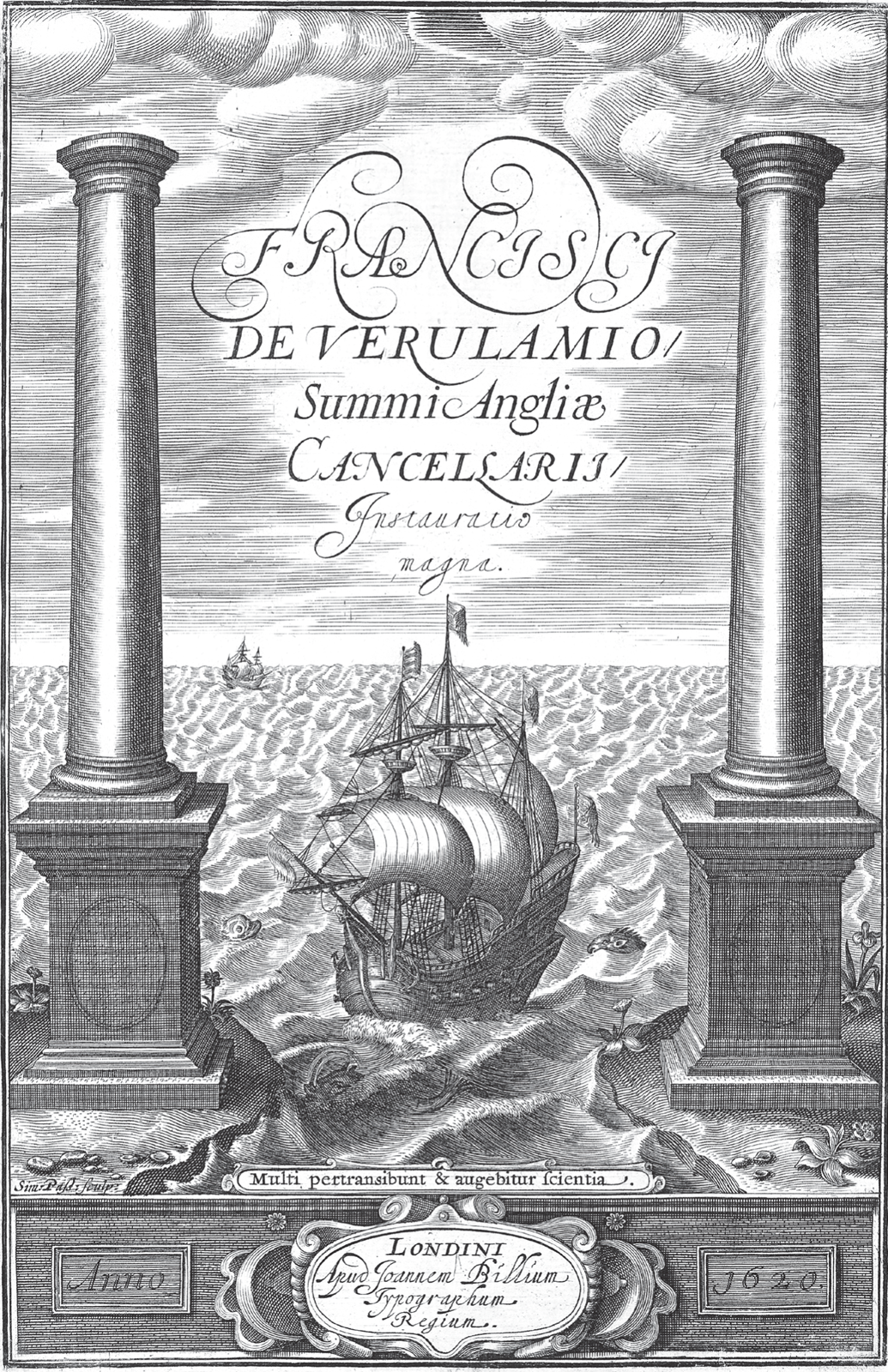
Title page of Francis Bacon, Novum organum (1620), which shows a ship sailing in through the Pillars of Hercules (identified with the strait between Gibraltar and North Africa the opening from the Mediterranean to the Atlantic) after exploring an unknown world.
List of Illustrations
ILLUSTRATIONS IN THE TEXT
PLATE SECTION
For Alison
Hanc ego de caelo ducentem sidera vidi
(I have seen her draw down the stars from the sky)
Tibullus, Elegies, I.ii
Eureka!
Archimedes (287212 BCE )
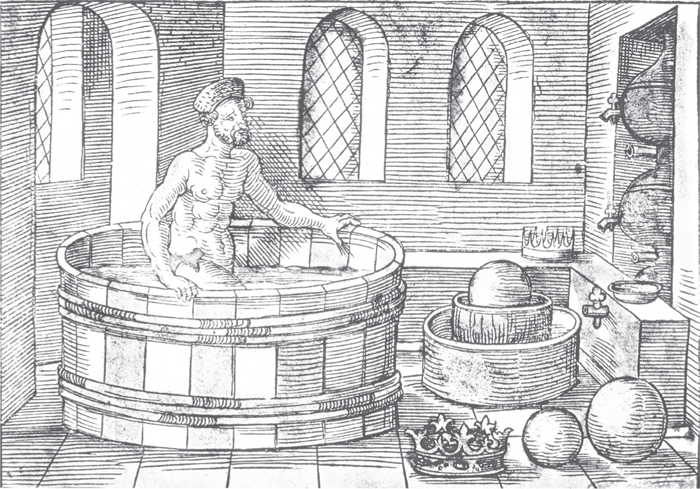
Archimedes in his bath, a woodcut by Peter Fltner (14901546) from the first German translation of Vitruvius (Vitruvius Teutsch), published by Johannes Petreius in Nuremberg in 1548. Hieros crown is on the right in the foreground.
Introduction
This is the Age wherein (me-thinks) Philosophy comes in with a Spring-tide; and the Peripateticks may as well hope to stop the Current of the Tide, or (with Xerxes) to fetter the Ocean, as hinder the overflowing of free Philosophy: Me-thinks, I see how all the old Rubbish must be thrown away, and the rotten Buildings be overthrown, and carried away with so powerful an Inundation. These are the days that must lay a new Foundation of a more magnificent Philosophy, never to be overthrown: that will Empirically and Sensibly canvass the Phaenomena of Nature, deducing the Causes of things from such Originals in Nature, as we observe are producible by Art, and the infallible demonstration of Mechanicks: and certainly, this is the way, and no other, to build a true and permanent Philosophy
Henry Power, Experimental Philosophy (1664)
Modern science was invented between 1572, when Tycho Brahe saw a nova, or new star, and 1704, when Newton published his Opticks, which demonstrated that white light is made up of light of all the colours of the rainbow, that you can split it into its component colours with a prism, and that colour inheres in light, not in objects. There were systems of knowledge we call sciences before 1572, but the only one which functioned remotely like a modern science, in that it had sophisticated theories based on a substantial body of evidence and could make reliable predictions, was astronomy, and it was astronomy that was transformed in the years after 1572 into the first true science. What made astronomy in the years after 1572 a science? It had a research programme, a community of experts, and it was prepared to question every long-established certainty (that there can be no change in the heavens, that all movement in the heavens is circular, that the heavens consist of crystalline spheres) in the light of new evidence. Where astronomy led, other new sciences followed.

